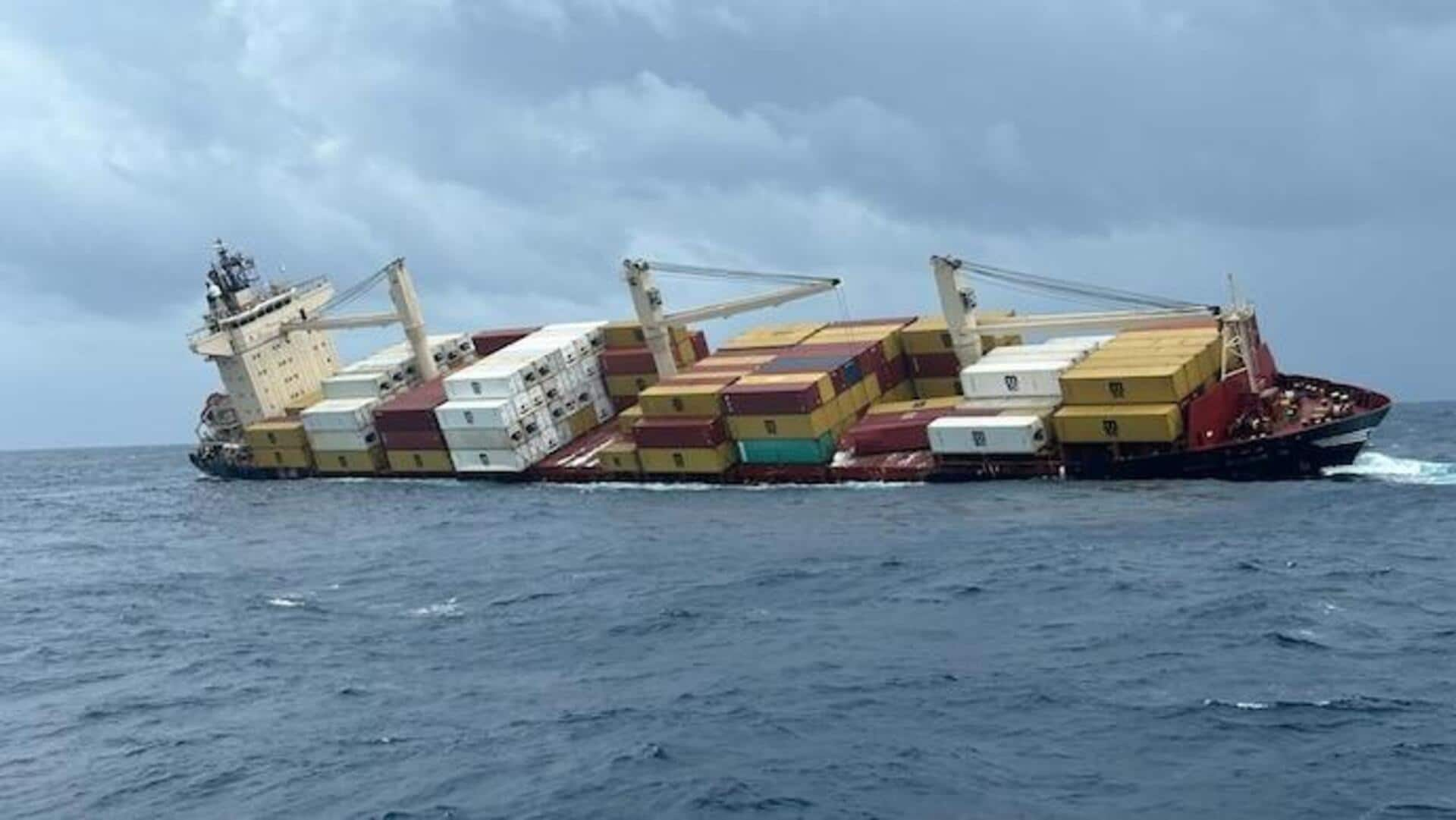
Ship carrying calcium-carbide sinks off Kochi: Should we be worried?
What's the story
A major environmental threat has emerged off the coast of Kerala as the Liberian-flagged container ship, MSC ELSA 3, sank today. The incident took place around 38 nautical miles off Kochi. The ship was carrying a huge quantity of diesel and furnace oil, in addition to 640 containers. Among them were 13 with hazardous materials and 12 with calcium carbide. Calcium carbide can be dangerous for marine life. Here's why.
Rescue operation
Crew safely rescued amid environmental concerns
The ship capsized after it was severely flooded in one of its holds. Fortunately, all 24 crew members were safely rescued in a joint operation by the Indian Coast Guard (ICG) and the Indian Navy. Though there are no official reports of an oil spill yet, there are increased concerns of a large-scale oil and chemical spill from the sunken vessel.
Monitoring efforts
ICG deploys pollution response ship and aircraft
In response to the incident, the ICG has deployed its pollution response ship 'Saksham' and is using aircraft with advanced oil spill mapping technology to monitor the area. The Kerala State Disaster Management Authority (KSDMA) has issued urgent warnings against touching or approaching any containers or materials that may wash ashore. This is due to the risk of marine gas oil and very low sulfur fuel oil (VLSFO) leaking into the sea.
Chemical reaction
Calcium carbide poses potential risks to marine life
Calcium carbide (or calcium acetylide) is a colorless solid with the chemical formula CaC2. It is usually manufactured by reacting lime (calcium oxide) with coke (carbon) in an electric furnace at around 2,000 degree Celsius. When it comes in contact with water, it undergoes a highly exothermic reaction producing acetylene gas and calcium hydroxide. The heat released can be significant and the acetylene gas produced is highly flammable.
Environmental impact
Calcium hydroxide increases alkalinity of water
The reaction of calcium carbide with water produces calcium hydroxide, which makes water more alkaline. This could affect aquatic ecosystems by changing the pH levels—an important factor for the health, reproduction, and survival of aquatic organisms. The release of acetylene gas into water sources can affect water quality, especially in drinking/agricultural water bodies.
Vigilance
Authorities remain vigilant as floating containers spotted
Floating containers have already been spotted drifting away from the wreck, with some expected to reach the shore in coming days. The Coast Guard and state authorities are on high alert, coordinating efforts to contain any spill and recover hazardous materials. Fishermen and coastal residents have been urged to remain vigilant and report any sightings of containers or oil residues immediately.